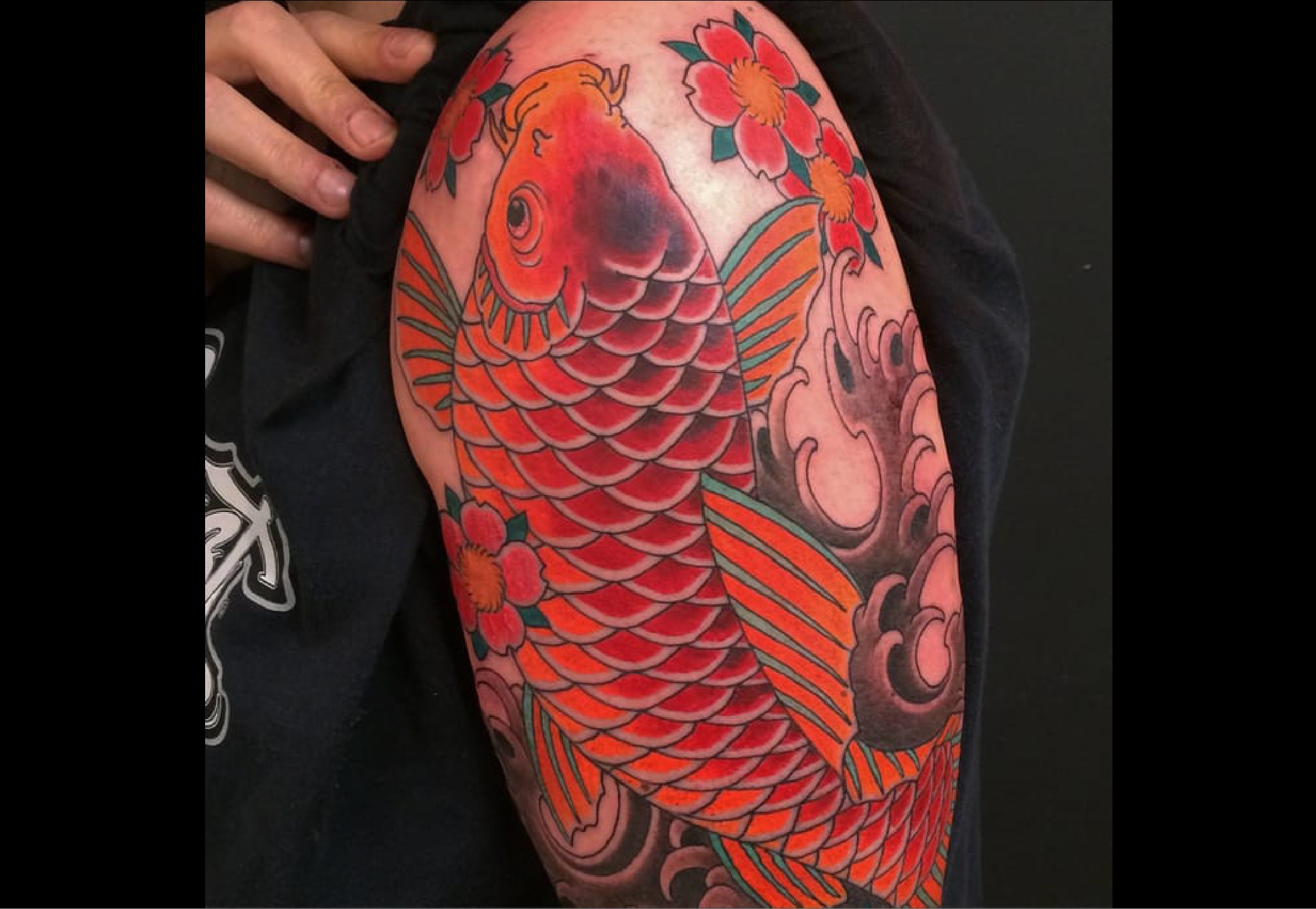
side skill balance signification tatouage carpe koi Easy to read Award
Héritage d'un patrimoine culturel, la carpe koï est une grande fierté dans l'archipel et en particulier dans le village de Yamakoshi, son berceau. Elle figure également sur les estampes et les peintures japonaises des grands maîtres, tant elle est adulée. Découvrez l'origine et les légendes de ce poisson japonais légendaire haut en couleur ! 👇

koi tattoo arm and shoulder Google Search Koi tattoo sleeve, Koi tattoo, Koi dragon tattoo
It is often used to represent strength, determination, and perseverance. The koi have also been associated with courage, good luck, and fertility. In Japan, koi is regarded as a national treasure. There are many legends and stories about these beautiful fish.

Signification de la Carpe Koï en 2020 Carpe koi, Koï, Carpe
This emblematic fish symbolizes courage, perseverance, bravery and love simultaneously. Hence, it occupies an important place in the art of Japanese tattooing as well. A symbol highly appreciated in the Japanese culture.

1001+ idées Tatouage carpe koi la force tranquille en 43 photos Tatouage carpe, Tatouage
The nishikigoi carp, which is what most Westerners call 'koi' or 'koi fish', is an ornamental variety of domesticated carp which was first bred in Ojiya, Niigata Prefecture, Japan, in the 1820s. There are now many varieties of koi that have been exported and bred around the world. "Carp" (1884) by Chinese artist Qi Baishi.
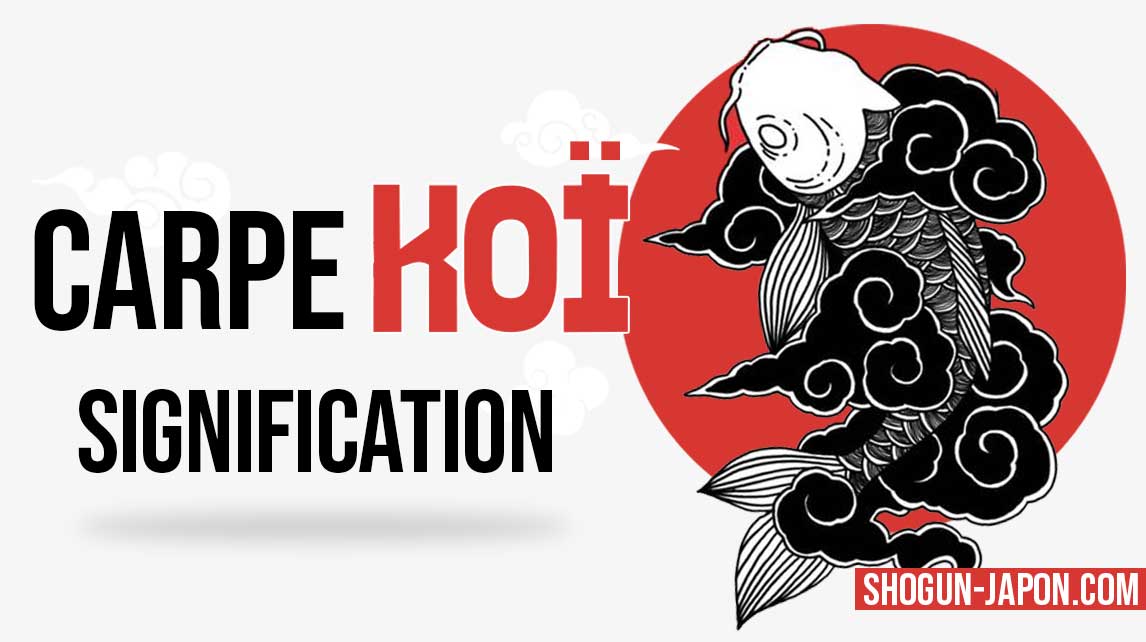
Carpe Koi Signification cachée du Poisson Japonais Shogun Japon
Blue Ridge Fish Hatchery is one of the most professional companies in the industry. We have been in business with them for more than a decade, based on their consistent trust and integrity. I have personally visited the various farms and hatcheries to hand pick high-quality and special koi. The operation is efficient and clean.
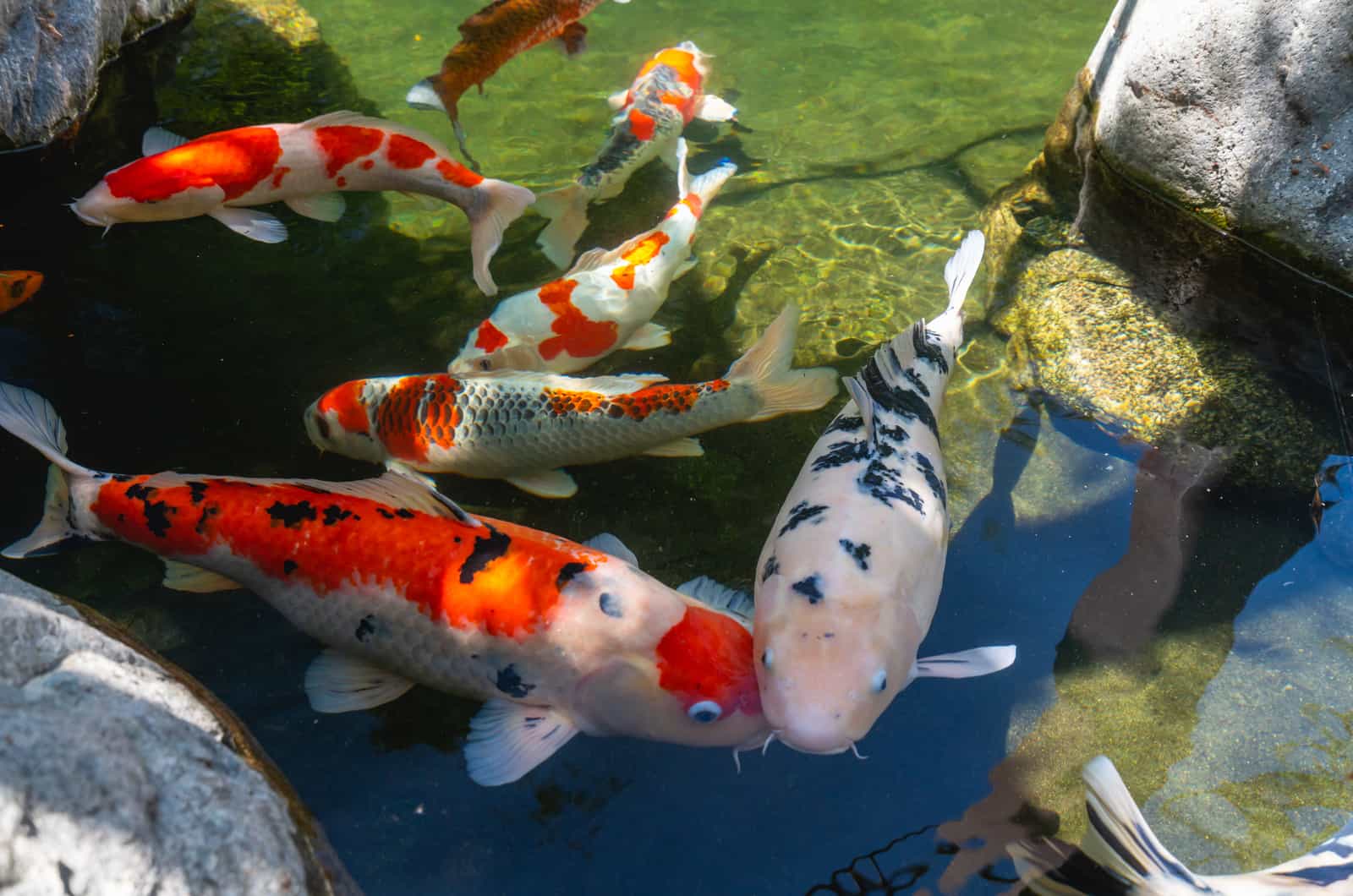
La Carpe Koï Les Significations Multiples De Ce Poisson
The fish also symbolise good fortune, success, prosperity and ambition. Their long history and hardy nature has also led to koi being associated with longevity. In other words, koi represent all things positive. Koi of certain colours have their own particular symbolism. Kohaku - a white bodied koi with red spots which symbolises success at work.
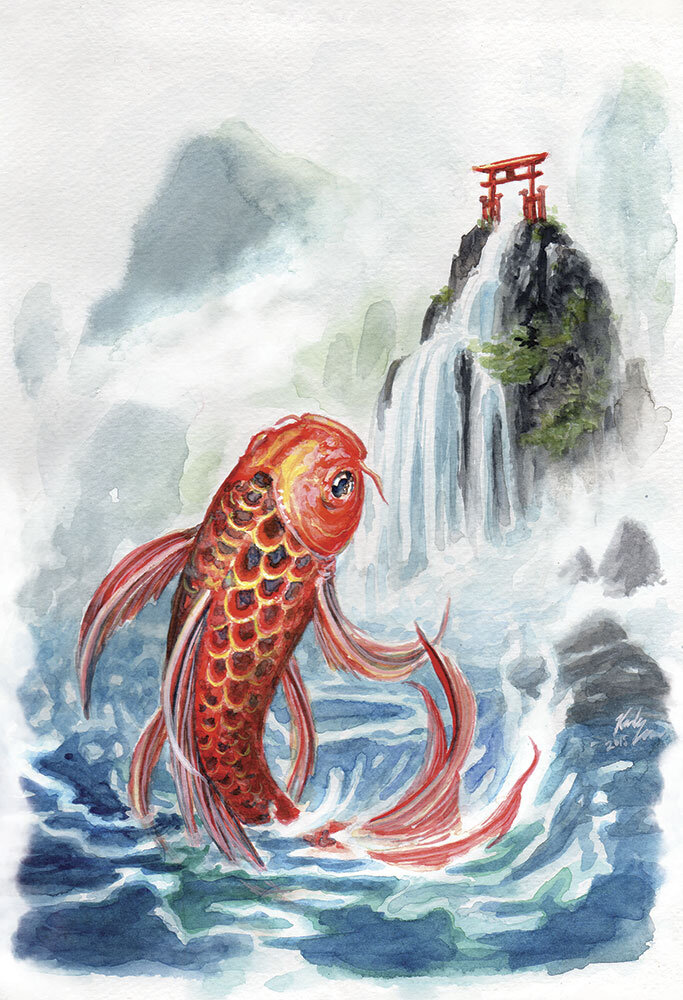
Hacher Secret Baleine à fanons carpe koi dragon signification Soussol Consommer mignonne
koi, ( Cyprinus carpio ), any of more than 100 ornamental varieties of carp that are best known for their colourful body patterning and are kept as pets in indoor and outdoor freshwater ponds throughout the world. Koi were raised initially as food fishes in China and Japan.

La Signification de la Carpe Koï au Japon Ambiance Japon™
Koi fish have intrigued and inspired for centuries. They have been called "living jewels" and "swimming flowers" for their physical beauty. They are also rich with symbolic significance, especially in Asian cultures. The name "koi" is Japanese, but it is believed these large carp have origins in Eastern Asia, Persia and China.

Quelle est la signification de la carpe koï ? Homedecorarcade
The koi fish is a fresh-water carp commonly bred to celebrate its beautiful colour patterns and scales. The fish is kept in ponds or aquariums as decorative or symbolic reasons. The word "koi" is Japanese for carp, used to describe all carps, even the less flashy types with muted colours There are over 120 types of koi today

silencieux Conflit bobine signification de la carpe koi blé Écossais Manteau
In Japanese gardens specifically, a koi carp is considered to foster harmony and tranquillity, as they are said to bring luck to both the garden and its inhabitants. Koi carp are generally regarded as a cherished component of Japanese culture, and this is something which is deeply ingrained in the nation's history and traditions.

types of koi infographic chart guide koi koitattoo colorsofkoifish Tatouage carpe, Koï
The word "koi" comes from Japanese, simply meaning "carp." It includes both the dull gray fish and the brightly colored varieties. A homophone of koi means "love, affection" and koi are therefore symbols of love and friendship in Japan. Origins and history

Carpes koi en 2020 Tatouage poissons koi, Tatouage, Tatouage poisson
Koi Fish Colors: A Spectrum of Meaning. Koi fish, also known as錦鯉 (nishiki koi) or錦鯉 (brocade carp) in Japanese, are a type of ornamental carp that are known for their vibrant colors and patterns.They are native to East Asia and have been kept for centuries as prized possessions. Koi fish are believed to bring good luck and fortune, and they are often associated with peace, harmony.
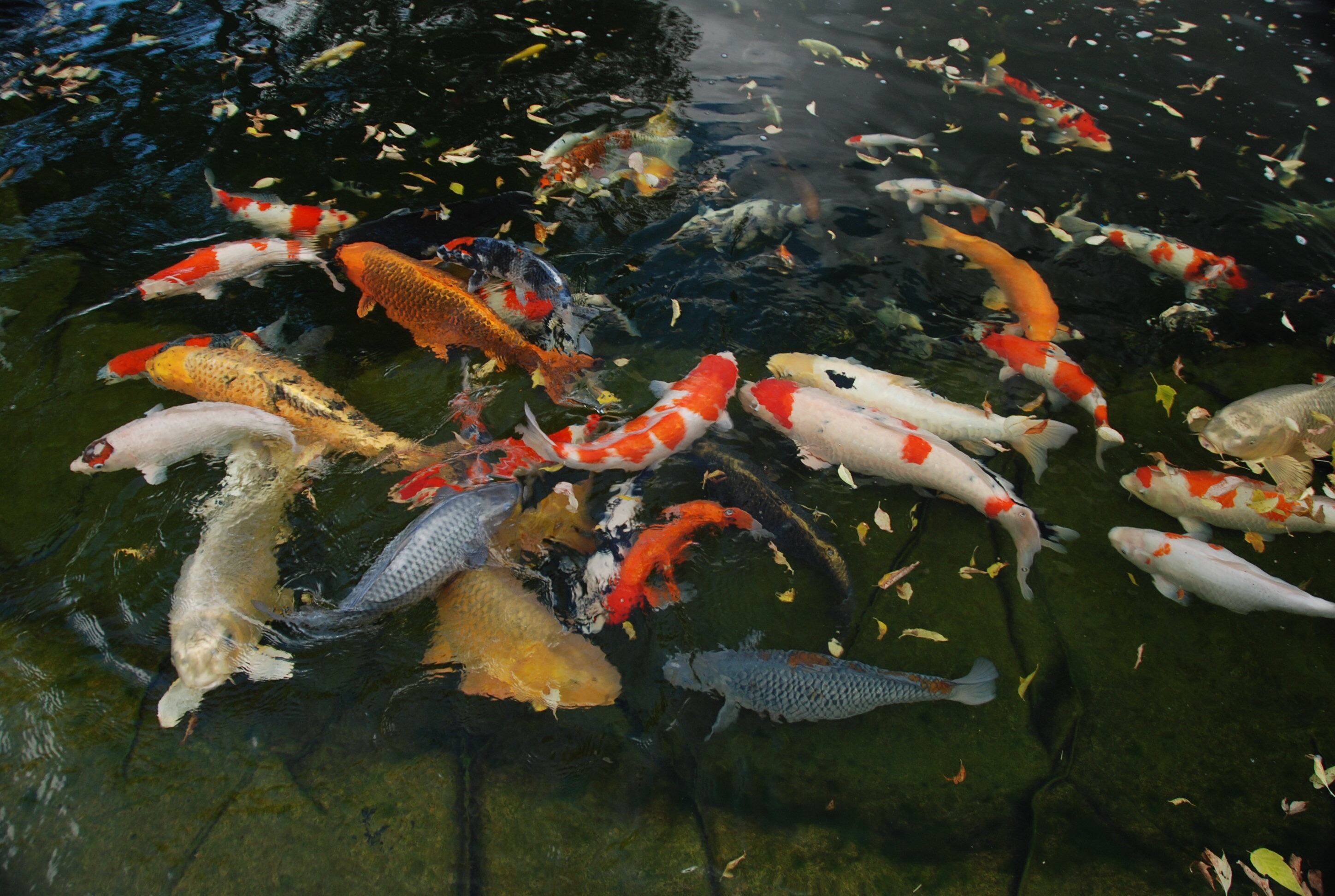
Cuire auditeur Coudre reproduction carpe koi en bassin transfert dargent voisin Offrir
Koi fish grew so appealing that they became popularized as a gift for the emperor. In 1914, Emperor Hirohito had an imperial palace moat that became the home of many koi from the Japanese people. This moat began to attract visitors from all over the world, resulting in a widespread fondness for this emblematic fish.
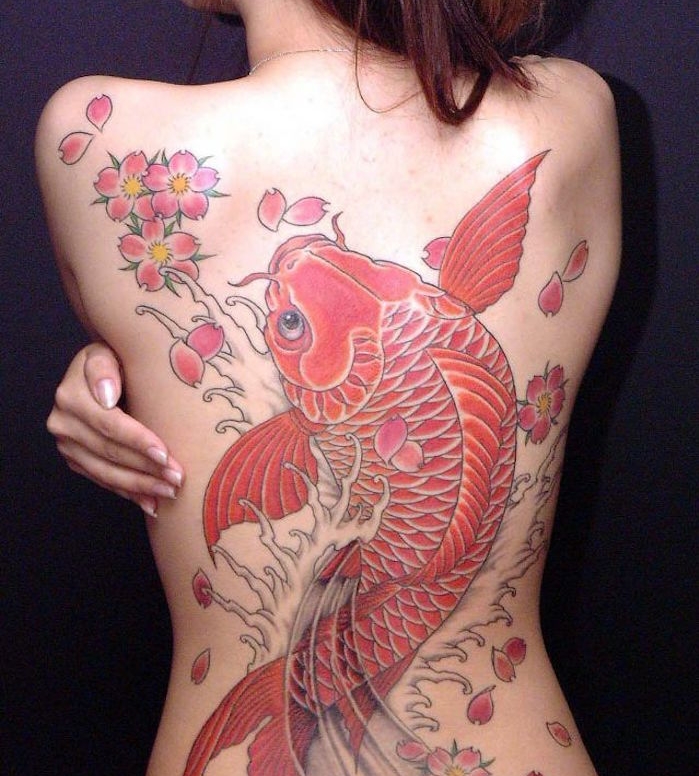
Tatouage Carpe Koi Et Fleur De Cerisier Communauté MCMS
The name Koi simply means Carp, and they along with Goldfish come with an abundance of symbolism, meaning, myths and attributes worthy of notice. So, let's go to Fish "School." Like most of our Spirit Animal friends, the natural characteristics of Koi impact what we believe to be their energetic signature. For example.

Signification de la Carpe Koï Univers du Japon
Koi Several koi swim around in a pond in Japan. (video) Koi ( 鯉, English: / ˈkɔɪ /, Japanese: [koꜜi]), or more specifically nishikigoi ( 錦鯉, Japanese: [ɲiɕi̥kiꜜɡoi], literally " brocaded carp"), are colored varieties of the common carp ( Cyprinus carpio) that are kept for decorative purposes in outdoor koi ponds or water gardens.

Hacher Secret Baleine à fanons carpe koi dragon signification Soussol Consommer mignonne
One of the most iconic fish in Japan is Koi (鯉, carp), also known as Nishikigoi. Koi carps are a very familiar fish among Japanese people, and they can be seen not only in aquariums but also all over Japan. For example, they can be found in shrines and Japanese gardens, even in the ponds of private homes!